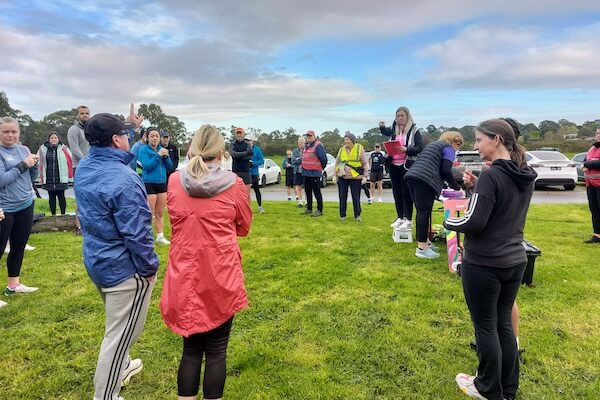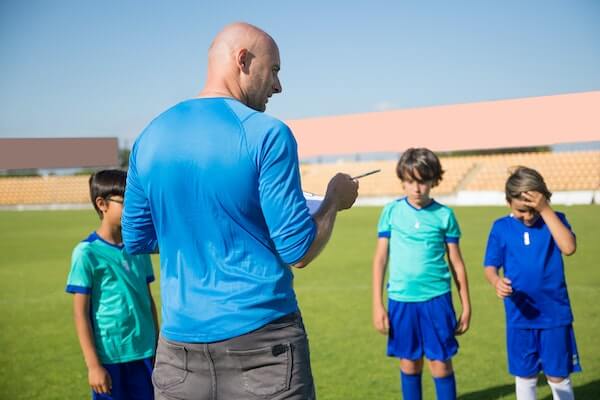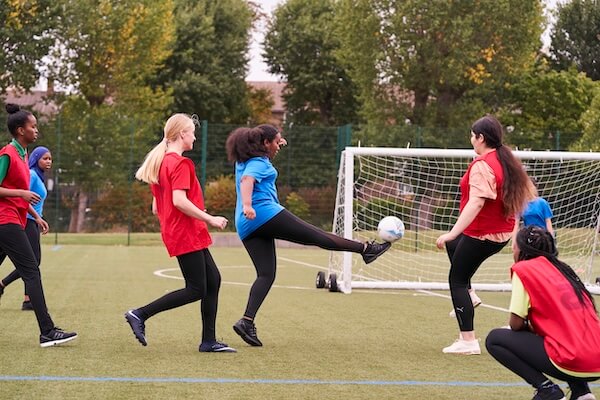
Volunteering is a cornerstone of Australian communities, with
individuals from all walks of life dedicating their time and
energy to causes that matter to them. As we celebrate the spirit
of giving back, it's important to recognize the profound impact
volunteers have in shaping our society. In sports and fitness,
volunteers play a pivotal role, ensuring that events and
activities not only run smoothly but also foster a sense of
community and belonging.
The Power of Volunteers in Sports and Fitness
In Victoria alone, over 580,000 people volunteer in the sport and recreation sector each year. This is more than the number of volunteers in the health and social sectors combined. Volunteers are the backbone of community sports clubs and fitness events like charity runs, playing crucial roles in making these events successful and enjoyable.
Volunteers in sports and fitness events take on various roles, from coaching and refereeing to organising and promoting events. Their dedication not only keeps these activities running smoothly but also fosters a sense of community and belonging. When people come together for a charity run or a weekend sports game, it’s the volunteers who ensure everything goes off without a hitch.
Building Community and Social Networks
Volunteering in sports and fitness events does more than just support the events themselves; it builds community cohesion. It provides people with a social network and a focal point for civic activity. Through volunteering, individuals connect with others who share their interests, forming friendships and support systems that extend beyond the events themselves.
Opportunities for Everyone
There’s a volunteer opportunity for everyone, no matter your skills or interests. Here are some ways you can get involved, with examples to illustrate the diverse roles you can take on:
Event Coordination
Event coordinators are essential for the smooth running of sports and fitness events. For example, if you’re volunteering at a local charity run, you might be involved in:
-
Planning the Route: Designing the course, ensuring it's safe and enjoyable for all participants.
-
Organising the Schedule: Setting up timelines for race day, including registration, start times, and post-race activities.
-
Coordinating Volunteers: Assigning roles to other volunteers, making sure everyone knows their tasks and responsibilities.
Coaching and Mentoring

Sharing your expertise by coaching a local sports team or mentoring young athletes can be incredibly rewarding. For instance:
-
Youth Soccer Coach: Teaching kids the fundamentals of soccer, organising practice sessions, and providing encouragement during games.
-
Mentoring Up-and-Coming Runners: Helping young runners improve their technique, build their confidence, and prepare for races.
Logistics and Setup
Logistics and setup volunteers ensure that events are ready to go. Examples of this role include:
-
Setting Up the Finish Line: Arranging banners, timing systems, and refreshment stations for a charity marathon.
-
Organising Equipment: Making sure that all necessary sports equipment is available and in good condition before a community sports day.
Promotion and Fundraising
Using your creativity and communication skills to promote events and raise funds is crucial for their success. For example:
-
Social Media Campaigns: Creating engaging posts and updates on social media to attract participants and supporters for a local charity run.
-
Fundraising Events: Organising events such as bake sales, trivia nights, or silent auctions to raise money for a community sports club.
Health and Safety
Ensuring the wellbeing of participants by volunteering in roles focused on first aid and safety is vital. Examples include:
-
First Aid Stations: Staffing a first aid tent during a marathon, ready to assist runners with any medical needs.
-
Safety Marshals: Patrolling the course of a cycling event, ensuring that participants are following safety guidelines and providing assistance if needed.
The Benefits of Volunteering
Volunteering offers a range of benefits that extend far beyond the immediate impact on the community. Here are some of the key advantages of getting involved in volunteer activities:
Personal Growth and Development
Volunteering provides an excellent opportunity for personal growth. By taking on new roles and responsibilities, you can develop a variety of skills that are beneficial in both your personal and professional life. For example:
-
Leadership and Teamwork: Coordinating events or leading a team of volunteers helps hone your leadership and teamwork abilities.
-
Communication Skills: Engaging with different people and managing various aspects of an event enhances your communication and interpersonal skills.
-
Problem-Solving: Handling unexpected challenges during an event improves your problem-solving capabilities.
Social Connections and Community Building

Volunteering helps build strong social connections and a sense of community. It brings people together, fostering relationships and networks that might not form otherwise. For instance:
-
Making New Friends: Working alongside others towards a common goal is a great way to meet new people and forge lasting friendships.
-
Strengthening Community Bonds: Volunteering in local events helps create a supportive community where people look out for one another.
Mental and Physical Wellbeing
Engaging in volunteer work can have significant positive effects
on your mental
and physical health. Benefits include:
-
Increased Happiness and Satisfaction: Helping others and contributing to a cause you care about can boost your mood and overall life satisfaction.
-
Reduced Stress and Anxiety: Volunteering provides a sense of purpose and fulfillment, which can help reduce stress and anxiety levels.
-
Physical Activity: Many volunteer opportunities, especially in sports and fitness events, involve physical activity, which is great for your health.
Career Advancement
Volunteering can also enhance your career prospects by providing valuable experience and networking opportunities. Benefits in this area include:
-
Gaining Experience: Volunteering allows you to gain experience in new fields and roles, which can be a great addition to your resume.
-
Networking: Meeting people from various backgrounds and industries can open doors to new career opportunities and professional growth.
-
References and Recommendations: Volunteering can provide you with references and recommendations that are valuable when applying for jobs or further education.
Making a Tangible Difference
One of the most rewarding aspects of volunteering is the knowledge that you are making a tangible difference in your community. Examples of this impact include:
-
Supporting Local Sports: Helping organise and run local sports events ensures that community members have access to healthy, recreational activities.
-
Raising Funds for Charities: Volunteering in fundraising events helps generate essential funds for causes that improve the lives of others.
Finding Your Perfect Fit
Volunteering offers a chance to explore your passions and develop new skills. Whether you’re drawn to environmental causes, community outreach, education, or sports, there’s a place where your unique talents can shine. It’s an opportunity to find your niche and contribute to the vibrant tapestry of our communities.
So, as we recognize the impact of volunteers, consider how you can get involved. Whether it’s helping out at a local sports club or assisting in a charity run, your contribution makes a significant difference. Let’s come together to recognize and celebrate the volunteers who are the heartbeat of our communities.






